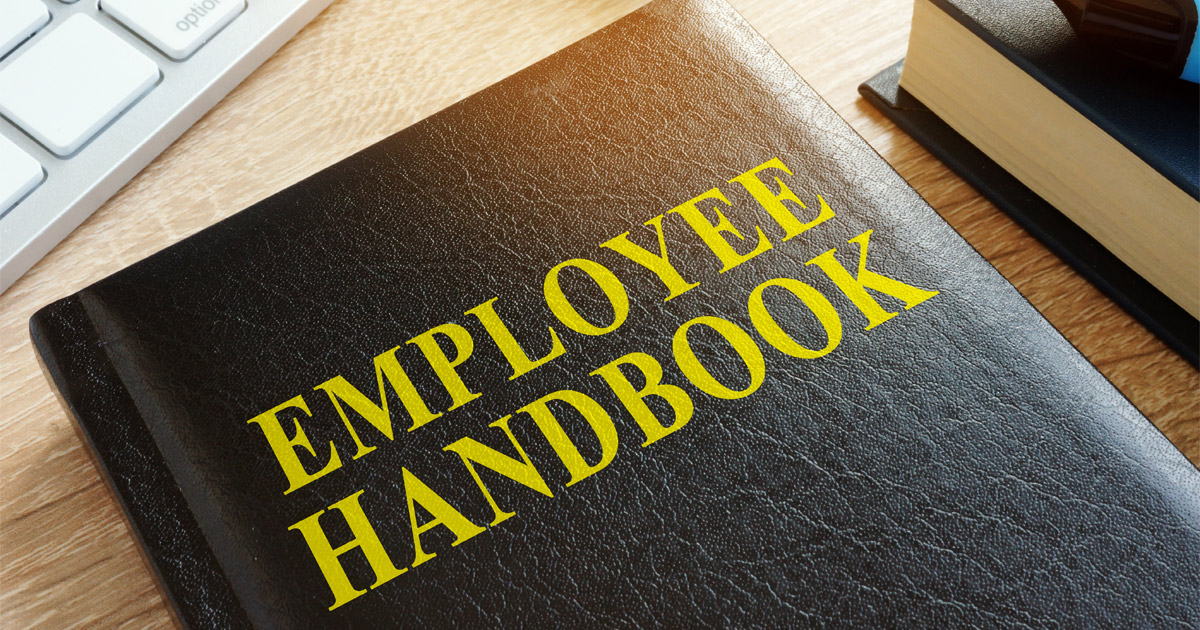Are Employee Handbooks Required by Law?

Employee handbooks are critical documents that outline company policies, procedures, and expectations for employees. For business owners in Maryland, understanding whether employee handbooks are a legal requirement is essential to ensuring compliance with state and federal laws. This blog will explore the necessity of employee handbooks and provide guidance on best practices for creating them.
What Is the Legal Perspective on Employee Handbooks?
Employee handbooks serve as a comprehensive guide for employees, providing clarity on workplace rules, benefits, and obligations. However, there is no federal law that mandates businesses to have an employee handbook. In Maryland, the situation is similar; there is no state law requiring companies to create or distribute an employee handbook. Nonetheless, having an employee handbook can significantly benefit both employers and employees by fostering clear communication and setting expectations.
While not legally required, certain federal and state laws mandate that employers convey specific information to their employees. For instance, the Family and Medical Leave Act (FMLA), Occupational Safety and Health Administration (OSHA) regulations, and the Equal Employment Opportunity Commission (EEOC) guidelines require employers to inform employees about their rights and protections. An employee handbook can serve as an effective tool for communicating these mandatory disclosures.
What Are the Benefits of Having an Employee Handbook?
- Clarity and Consistency: Employee handbooks provide a consistent framework for policies and procedures, ensuring that all employees receive the same information. This helps prevent misunderstandings and ensures that everyone is on the same page regarding company expectations.
- Legal Protection: A well-drafted employee handbook can protect employers from potential legal disputes. By clearly outlining policies on issues such as anti-discrimination, harassment, and disciplinary actions, employers can demonstrate their commitment to compliance with labor laws and mitigate the risk of litigation.
- Employee Onboarding: Handbooks are valuable resources for new employees. They provide a comprehensive overview of the company’s culture, policies, and benefits, helping new hires acclimate more quickly and effectively.
- Performance Management: An employee handbook can outline performance expectations and review processes. This aids in maintaining a fair and transparent performance management system, which can improve overall employee satisfaction and productivity.
How Can I Craft an Effective Employee Handbook?
Creating an employee handbook involves several key steps to ensure it is comprehensive, clear, and legally compliant:
- Define the Purpose: Clearly articulate the objectives of the employee handbook. It should serve as a guide for employees to understand company policies, procedures, and expectations.
- Include Mandatory Disclosures: Ensure the handbook includes all legally required information, such as employee rights under FMLA, OSHA regulations, and EEOC guidelines.
- Outline Company Policies: Detail specific company policies, including attendance, dress code, workplace conduct, and disciplinary procedures. Be precise to avoid ambiguity.
- Review and Update Regularly: Laws and regulations change over time. Regularly review and update the employee handbook to ensure ongoing compliance and relevance.
- Seek Legal Counsel: Before finalizing the employee handbook, consult with a legal professional to ensure all content is accurate and compliant with applicable laws.
An Annapolis Business Lawyer at Oliveri & Larsen Keeps Your Business Compliant
While employee handbooks are not legally required in Maryland or under federal law, they offer substantial benefits to employers and employees. These handbooks help establish clear communication, provide legal protection, and enhance overall workplace efficiency. To learn more, speak with an Annapolis business lawyer at Oliveri & Larsen today. Contact us online or at 410-295-3000 to schedule your consultation with our experienced team. With an office in Annapolis, Maryland, we serve clients in Ocean City, Anne Arundel County, Baltimore County, Baltimore City, Calvert County, Harford County, Howard County, Queen Anne’s County, St. Mary’s County, Worcester County, Kent County, and the upper and lower Eastern Shores of Maryland.
